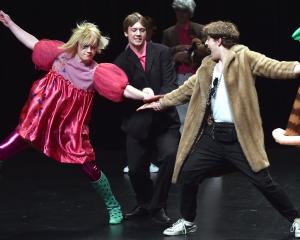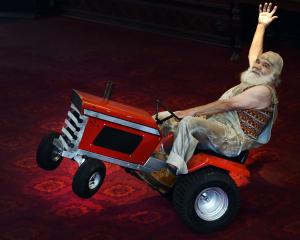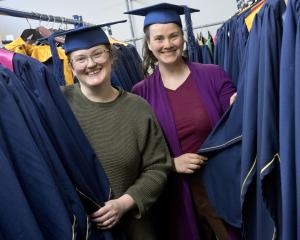Opera Otago's staging of two one-act operas in Olveston's drawing room should have worked well.
The venue's atmosphere is immediately charming and suits the production of intimate theatre.
Further thought should be given to the number of seats that can be squeezed into the space in order to maximise the intimacy without unnecessary crowding: the addition of less church-like cushions would greatly assist audience comfort.
The intimacy of the venue constrains the vocal projection and dramatic actions.
The drawing room is after all not of opera hall dimensions.
Benjamin Madden, playing Dr Ivor Chale, and Ingrid Fomison-Nurse, playing Flora Knowles in Dearest Maurice, directed and composed by John Drummond, were, dramatically speaking, not well balanced.
Madden erred on the side of being insufficiently dramatic, while Fomison-Nurse's voice was occasionally too big for the room.
Julia Moss-Pearson, playing Lucy, and Harry Grigg, playing Ben, in The Telephone, under Claire Barton's direction, got the level of dramatic and vocal projection just right.
Mike Crowl played the piano accompaniments for both works very well.
The music explores jumpy and atonal lines in moments of tension, and lyrical and tonal lines for moments of romance within the bouncy wit of 1940s music hall genre.
Dearest Maurice, composed by John Drummond, with words by Jeremy Commons, during 2003 is a successful collaboration.
It drew sniggers, giggles and cheers from the audience.
The duets were particularly successive with finely woven lines.
The Telephone was written by Gian Carlo Menotti for Broadway in 1947.
The plot requires only slight development while the tension is built via the simple intrusion of the telephone.
Well-written, well-paced, sung, acted and directed, it is the better opera and was equally well-received.
- Marain Poole












